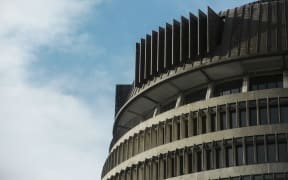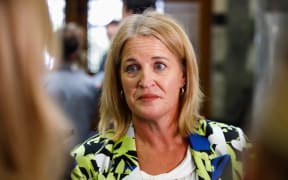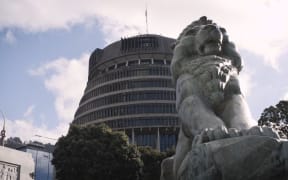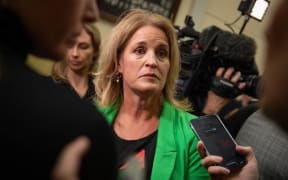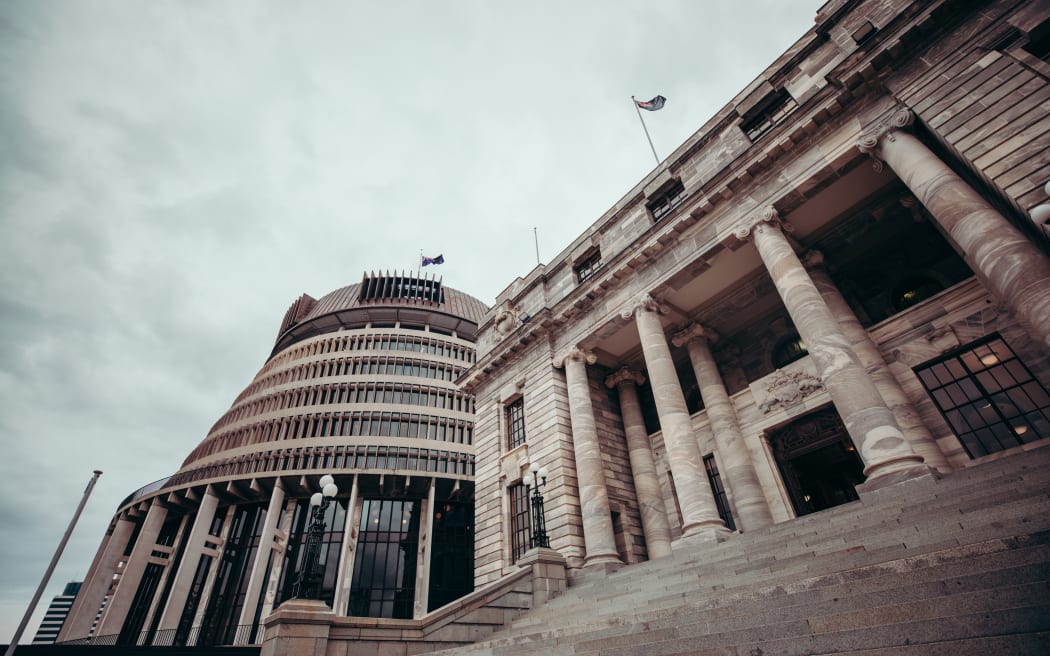
With the government unlikely to increase taxes to bring in more cash, it must cut spending, says the NZ Insititute. Photo: RNZ / Dom Thomas
The government can't just rely on axing public sector jobs and has to do more to cut spending, says the chief economist at a free market think tank.
Ministries have been ordered to find up to 7.5 percent in savings, and are releasing proposals to cut costs, with more than 3000 jobs already set to go.
New Zealand Initiative chief economist Eric Crampton says the government needs to bring down its debt.
He said the gap between amount the government spends and the amount it earns blew out during the pandemic and is now sitting around 4 percent of GDP, or $16 billion.

New Zealand Initiative chief economist Eric Crampton Photo: Supplied
Crampton said because the government was not inclined to increase taxes to bring in more cash, it must cut spending.
"That will then involve getting rid of programmes that were started during Covid and that don't seem to be providing sufficient benefits to be worth the cost."
Crampton said axing those programmes inevitably meant jobs will be lost but he thought that was necessary.
In 2018 the Labour government lifted the cap on core public servant numbers and staff increased from 49,730 to 65,699 by 2023, a boost of almost 16,000.
He said if the current job losses put staffing back to that 2018 level, people should not be worried.
"They're obviously able to deliver on that staffing compliment. If it's going beyond that then you could be more concerned about it, and if it's only getting part way there, you should be less concerned."
Crampton said staffing reductions were not enough to lower debt and more money could be saved by raising the superannuation age.
"It's something that should be looked at because it will be a rising fraction of overall government expenditure. Increasing healthy life expectancy means that people are working for longer and there will be more transfers to a relatively wealthy cohort.
"But that's also been ruled out by the coalition agreement."
'Something has to give'
But Council of Trade Unions economist and policy director Craig Renney did not think cutting staff was the best way to reduce spending.
Finance Minister Nicola Willis said she wanted to save $1.5 billion in public service spending annually to deliver policy commitments and fund cost pressures.
But Renney said if the government threw out its tax cut programme, it would have nearly $15b to play with and it would not have to borrow to make up the rest.
"Would I use that to deliver those tax cuts or would I use it to deliver goods and services or would I use it to knock of the debt?
"If I had $15 billion, I can think of many things I could do better with it than give very significant portions of it to higher income earners and to landlords."
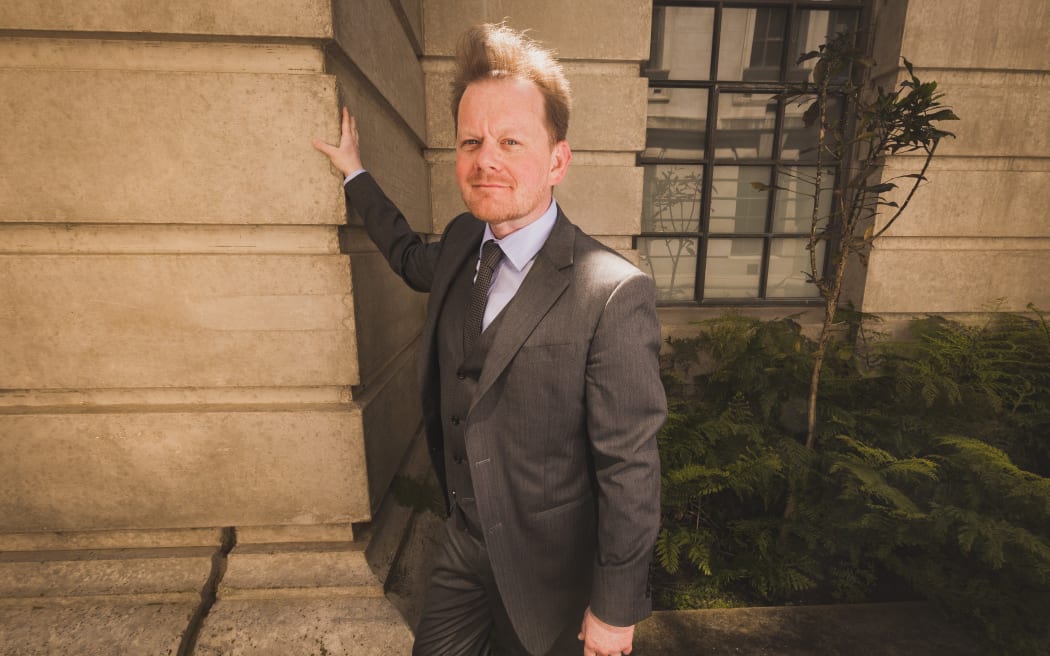
Council of Trade Unions (NZCTU) policy director and economist Craig Renney. Photo: Stuff / ROBERT KITCHIN
Renney - who was recently elected to the Labour Party's policy council and worked for Grant Robertson when he was the Finance Minister - said there was not a debt crisis, with the government's debt level well below that of Australia, the United Kingdom, the United States and Canada.
He said that meant there was not a compelling argument for reducing public sector spending.
"I come from the UK and when the David Cameron government turned up, it cut very significantly into public services and sadly the story was that actually public service has declined in both quantity and in quality.
"I hope that's not the case here, but if you have fewer people delivering to a larger population with ever higher levels of need, something has to give."
A simplistic solution
Victoria University of Wellington head of the school of government Karl Lofgren agreed that cutting back public servants could be risky.
"MPI is cutting back on people and in particular in bio-security. Next time we get some bug from Australia, we're going to have a outcry about we haven't got enough staff to inspect whatever is coming into the country."
The government has insisted front-line staff will be safe and services will not be compromised.
MPI confirmed the biosecurity unit will be affected by its job cut proposal, but not the border control team.
Lofgren said axing jobs to save money is a simplistic solution and governments would be better off doing more regular reviews of the public service to make sure they're getting value for money.

